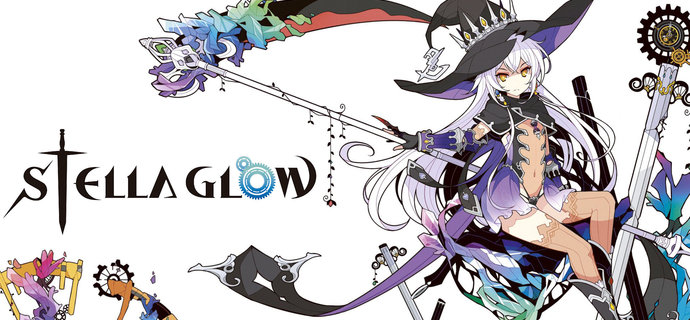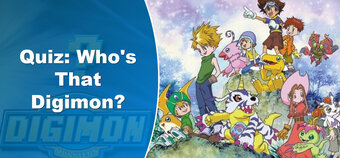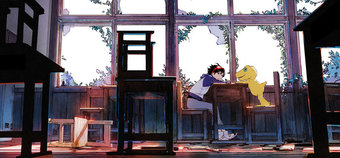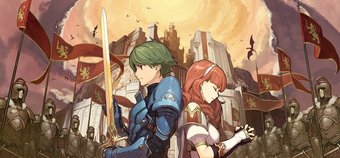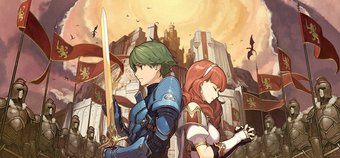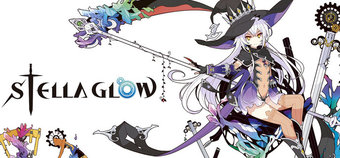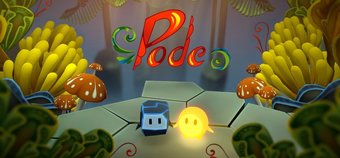Let me tell you a tale - a story of long ago, when a God watched over everyone from his seat up on high, on the moon's surface (hey, if you were a god, where would you live?). In return for his divine protection from high up on his moonbase, the people down below worshipped him with all their might. But as time passed, civilisation moved on, and the people's faith in God began to dwindle - until one day the spurned God decided enough was enough. Sending an army of angels down to the earth to punish the faithless, a raging war broke out, and many died in the carnage - until a brave young boy, called Elcrest, stood up to the angered deity, travelling to the moon and giving up his life in return for the safety of the people down below. Satisfied the people had learned their lesson, God called back his armies and normal life resumed once more, with Elcrest now remembered as a hero.
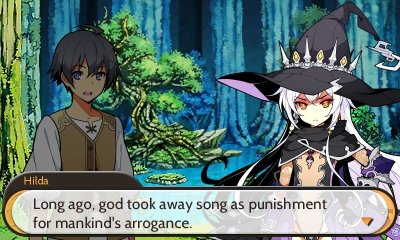
Seems a bit of a random thing for God to take away, but there you go.
But things didn't quite go back to the way they were. On the now fearful planet, the simple act of singing became a rarity, ever since the aforementioned vengeful God took away man's ability to hold a tune as punishment. However, some folk can sing - the blessed beings known as witches. Recently, a bad egg of a witch, known as Hilda, the Witch of Destruction, has been going round and using her powers to curse towns across the land, turning each and every inhabitant into cold, crystallised versions of themselves. The story begins one day when Hilda and her Harbinger subordinates descend on a little country village, that of the protagonist Alto and his adopted sister/friend/potential love interest Lisette, imprisoning everyone but the pair in crystal.
However, a strange thing happened when Hilda tried to crystallise the duo - a pendant, given to Lisette by Alto mere days before, turns out to be a mysterious stone known as the 'Water Qualia', and turns Lisette into a witch herself - one that wields the power of water. Whilst her transformation manages to save both Alto and herself, Hilda and her crew run away, to crystallise another day - leading the pair to join up with an elite force of royal knights on a mission to track down the three remaining witches, so that they can sing a legendary song to end Hilda's reign of terror.
This, is Stella Glow, a game that sees you travel in and around the Regnant kingdom, to meet with the witches and persuade them to join your cause - which, in traditional role-playing game style, usually involves jumping through a few hoops first, such as convincing a rather insecure witch that the town she works so hard for is essentially using her. All told through a visual novel-esque story, linear and heavy on the reading with little input from the player, the story of Alto, Lisette and the other members of the Regnant Knights is a huge part of Stella Glow - and one of the best bits.
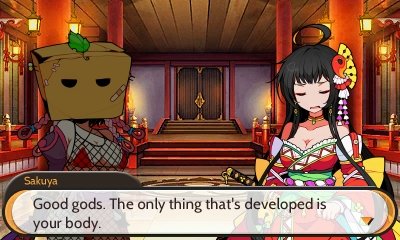
#SassySakuya
Stella Glow's battles are similarly slow paced - turn-based, and with a strategical spin, they take a bit more time to plod through than some. Each battlefield, which vary from village square to forests to temple halls, is divided into squares, with your party members and enemies alike spread out over the grid. Every turn, your characters can move a certain number of spaces on the grid, attack, defend or use spells and items, in an effort to reduce all of your opponents' health to zero. Different characters have different strengths and weaknesses - for example, the heavily armoured knight Archibald is great both at taking and dealing out damage, but is limited by his short range of movement, while the nimbler, knife-wielding scout Rusty deals less damage but moves much further - and his attack range is much larger too. How you position your forces is important too, as some characters gain bonuses from being on adjacent squares to one another, some gain special moves, and others are simply too weak to take much damage on their own - a prime example of which is the Water Witch Lisette, who's best kept sheltered between stronger guys, whom she can keep in tip-top fighting condition with her healing spells.
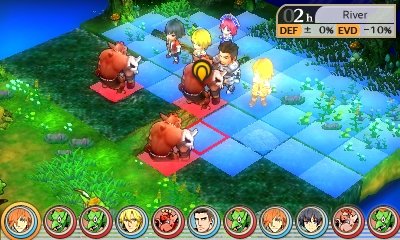
Blue squares show the squares you can move to during your turn.
Your time in Stella Glow is generally split into two halves - Mission Time, which is fairly self-explanatory, is spent furthering the story, battling and reading through cutscenes. Free Time however, which occurs at specific points between missions is a bit more open, letting you chat to your party members, earn money through part time jobs or search nearby locations for items. However, Free Time is fairly limited, with a maximum of three actions you can perform each 'day', meaning you'll probably want to prioritise spending time with your party members, particularly the witches - because growing closer with your team mates is key to unlocking new moves in battle, as well as letting you witness cute little snippets of their character outside of the main story, whether it's being nagged about cleanliness by Lisette, sitting through Archibald's swords 101 lectures or getting lessons on the ladies from Rusty.
At certain points during your discussions with the ladies, you might notice purple spiky 'heart chains' come across the screen as the damsel in distress starts being a bit cagey - a sure sign that the witch in question is in dire need of a tune up. 'Tuning', as it's known in the world of Stella Glow, is something only the legendary Conductor (conveniently, the protagonist Alto) can do, and is a way of getting rid of the negative emotions and insecurities that lie within the hearts of the witches, polluting their 'Qualia', the source of their powers. By entering into the girl in question's heart and cornering the shadowy version of their fears in the dungeon found inside, you can get them to open up, remove the chains and grow closer, unlocking new moves and abilities in the process. Without removing said heart chains, it's impossible to grow any closer with them through normal conversations, and they won't be able to learn any new attacks either, so it's well worth taking the time out to give your girls a once over from time to time.
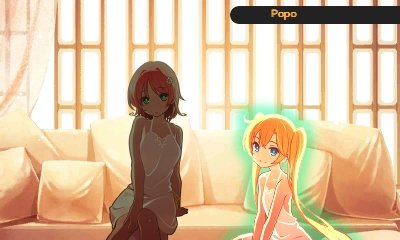
The 'uniform' of the tuning chamber is flimsy nighties too, just because.
Stella Glow may be fairly slow-paced, focussed on story-telling and characters first and foremost, with battles merely acting as a break from the reading, but that doesn't make it a bad game - in fact, it's right up our street. Well-written, with likeable and entertaining characters, whether it's the sweet and innocent Popo, loveable scamp and ladies' man Rusty or the hilariously awkwardly straight-laced Archibald, there's rarely a dull moment, while it's turn-based battles are a nice change of pace, keeping things from getting too text-heavy.
Format Reviewed: Nintendo 3DS

